Nati Cano
Nati Cano, visionary leader of Mariachi Los Camperos for over half a century, passed away recently at the age of 81. No one in the United States has made a greater contribution to mariachi music than Nati Cano.
José Natividad Cano Ruiz was born on July 23, 1933 in the small town of Ahuisculco, Jalisco, about an hour’s drive west of Guadalajara. Both his father and grandfather were mariachi musicians, and, at age six, young Nati began playing the vihuela. By the time he was eight, his family had moved to Guadalajara, where he took formal music lessons and studied the violin. Around 1950, Nati moved to Mexicali, Baja California, to join Mariachi Chapala, the best mariachi in the region at that time. Mariachi Chapala performed almost daily on live radio shows, accompanied the most famous ranchera vocalists of the day, and recorded prolifically. The group’s principal vocalist at that time was Heriberto Molina “El Cura,” who had yet to join Mariachi Vargas.
By the late 1950s, Mariachi Chapala had immigrated to the United States, where the group became the house band at the Granada Club, in downtown Los Angeles. Nati didn’t like working conditions at the Granada, including the fact that the mariachi performed sitting down. By the early 1960s, he left there to join the house mariachi at the prestigious Million Dollar Theater, a group led by guitarist José García Frías, which had recently changed its name to Mariachi Los Camperos. When Frías died unexpectedly in a car crash, Cano was elected as the group’s new leader. In the strict historical sense and contrary to popular belief, Nati was not the founder of Mariachi Los Camperos per se, but he certainly was the founder of that group in its present conception.
Early photo of Mariachi Los Camperos
Under Nati’s leadership, Los Camperos took a new direction. Nati took out a loan to buy new uniforms, began rehearsing the group up to four hours a day, and demanded high standards of discipline and conduct. He sought out new venues for his group, one of the first being Catalina Island, off the coast of Los Angeles. His tight ensemble was soon presenting its own self-contained shows at casinos in Las Vegas, Reno, Sparks, Lake Tahoe, and other places where mariachis had never previously performed. The Camperos became a regular attraction on Princess cruise ships, and, in 1964, they became the first mariachi to perform in New York’s Carnegie Hall.
1969 was a landmark year not only for Los Camperos, but also for mariachi music in general. That year, Nati and his group opened their own restaurant on Wilshire Boulevard in Los Angeles. La Fonda de Los Camperos, where the mariachi was the primary focus of attention, was the first-ever venture of this type. It soon became the mecca of mariachi music, and remained the mariachi hot spot of the U.S. until it finally closed in 2007. Today, mariachi restaurants all over the world are modeled after La Fonda.
La Fonda Restaurant
Over its 50-year history, Mariachi Los Camperos has made a large number of recordings with other artists, several of them Grammy winners, and released over a dozen albums of its own. The group has backed many singers, including Linda Ronstadt, with whom they toured extensively and participated in two albums. As an individual, Nati Cano received the National Endowment for the Arts National Heritage fellowship, the highest honor the federal government bestows on practitioners of the traditional arts. These fellowships recognize the recipients’ artistic excellence and support their continuing contributions to our nation’s traditional arts heritage. The NEA posted a statement on the death of Nati Cano, and maintains a webpage describing his career and accomplishments. Among numerous other distinctions, Nati also won the prestigious United States Artists Award, and was elected to Mariachi Spectacular de Albuquerque’s Hall of Fame.
In 2008, Cano began a long battle with cancer. In spite of the seriousness of his illness, he rarely spoke about it, and kept a positive attitude until the very end. He continued touring with Los Camperos as much as his health would permit, his last trip being to Guadalajara this past September. I spoke with Nati on the phone exactly one week before he died. He was so upbeat and jocular that I never suspected he was in his final days.
Nati Cano finally lost his bout with cancer on October 3, 2014. A private funeral Mass on October 15 was attended by a small number of close friends, family, and Camperos members at St. Francis of Assisi Catholic Church in Fillmore, California. His ashes were deposited at the Bardsdale Cemetery, located at the foot of the mountains overlooking Fillmore, where he spent the final years of his life. Nati is survived by his wife Andrea Cano, and their daughters Alejandra and Natalia.
Los Camperos in the city of Guanajuato
Mariachi Los Camperos continues under the able direction of Jesús “Chuy” Guzmán. When the group isn’t on tour, they can be heard at El Pescador restaurant, in Carson, California. Thanks to the immense vision, talent, and tenacity of its leader and mastermind, Nati Cano, Los Camperos remains an active, vital ensemble, and the most venerated mariachi in the United States.
—Jonathan Clark
Eulogies for Nati Cano
Descanse en paz el buen compañero y amigo Nati Cano, quien por tantos años fue fiel representante de nuestro folclor mexicano en Estados Unidos.
—Miguel Martínez
La labor de Nati Cano es muy importante, ya que sigue sosteniendo el mariachi muy fuerte en Estados Unidos. Para mí, Nati es un hombre que merece todos los elogios de las personas que nos dedicamos a la música ranchera. Al igual que a mis compañeros, siento mucho la pérdida de él.
—Rigoberto Alfaro
Nati fue para muchos de nosotros un amigo, una persona que invariablemente sonreía ante la vida misma y un ícono fundamental de nuestra música en el mundo entero. Sus Camperos tuvieron ese sello alegre que conservarán por siempre, pues jamás dejaremos de recordar al “Chief” con sus comentarios gratos, sus pláticas amenas y ese estilo peculiar de plasmar a nuestro país en su repertorio. México y el mundo ha perdido a un gran maestro. Descansa en paz, amigo Nati.
—José “Pepe” Martínez
El traje charro y la música de mariachi se respetan gracias a Nati Cano. Y no hablo sólo de Estados Unidos, porque su influencia llegó hasta México. Yo trabajé muchos años con Nati, y nunca conocí a otro director de mariachi como él. Lo que es del César al César.
—Pedro Rey
La forma de trabajar como se debe, lo aprendí de Nati Cano, de nadie más. Él me enseñó a comportarme con categoría y como un artista. La última vez que lo visité, tuve la oportunidad de decirle en vida: “Gracias a ti, Nati, yo aprendí a trabajar con mucha dignidad y a portar el traje de charro con mucho orgullo. Por eso, siempre estaré muy agradecido contigo”.
—Crescencio “Chencho” Hernández
Nati Cano played an important part of mariachi history here in the United States, and my sincere prayers are with his family.
—José Hernández
In the early years of my musical career, when I was with Los Changuitos Feos (1967-1971), I got to meet Los Camperos at Disneyland and spend time with members of the group. They represented the top tier of all the mariachis we had been exposed to, and never before had we seen a mariachi of that caliber. After I formed Mariachi Cobre in 1971, every chance we got, we would travel to La Fonda to hear Los Camperos. They were the model we followed, both in terms of music and stage presentation. It wasn’t until 1980 that we saw Mariachi Vargas in person for the first time, so up until then, Los Camperos were almost our sole influence.
—Randy Carrillo
I first met Nati Cano in 1969, when La Fonda had only been open for about a month. I introduced myself and told him I was a UCLA mariachi student. Unlike many professional mariachi musicians who scoffed at me, Nati was warm and encouraging. One night at La Fonda, I requested “Los Arrieros,” and the group was reluctant to play it. But the next week when I entered the restaurant, they performed it perfectly. From that moment on, I understood that Nati took all of his clientele seriously—even a humble student.
Years later, in 1998, I took my student group from Wenatchee, Washington to the Fresno ¡Viva el Mariachi! Festival. Nati listened to the group and immediately gave specific suggestions and words of inspiration. On the day of the main concert, he gave up 15 minutes of Los Camperos’ stage time to allow us to perform. This was unheard of.
In 2001, I moved to Chula Vista, California, and for twelve years Nati made three or four trips a year to work with my students and encourage them. In 2011, he traveled with his family to the resort town of Pismo Beach, California where he gave us a three-day private master class.
Nati was able to size up the needs of any group immediately, and knew the specific problems of each instrument or voice down to the minutest detail. Above all, he knew how to make the music connect to the audience. He would try to reach and inspire each student on a personal level, so he or she could become a true musician. Nati did all of this at his own personal expense. His generosity was boundless.
The last time Nati worked with my students was last February. He flew with us to Seattle, crossed the Cascade Mountains on a school bus in a blizzard, and spent four days in Wenatchee coaching students and giving talks in local schools. I can think of no one of Nati’s caliber doing anything like this.
I am extremely grateful to Nati Cano for the tremendous musical knowledge and inspiration he freely gave to me and to countless young musicians over the years.
—Mark Fogelquist
Nati left this world firmly believing that the future of our music relies on the children. He was a huge advocate of mariachi education in Mexican diaspora communities in the U.S., a movement of which I am a product. Having been invited to join his prestigious ensemble, I am a living testament and example of this belief. For that, I am honored and grateful.
—Sergio “Checo” Alonso
Nati Cano was my friend and mentor, and I will always cherish his memory. In my opinion, he did more than anyone else to elevate the image of the mariachi.
—Rebecca Gonzales

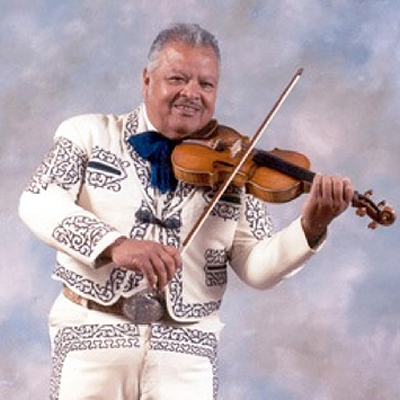
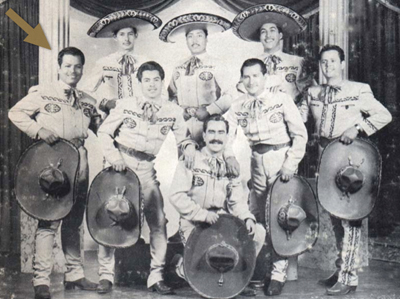
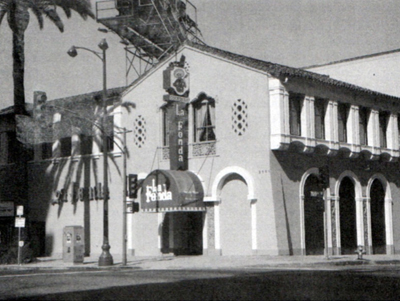
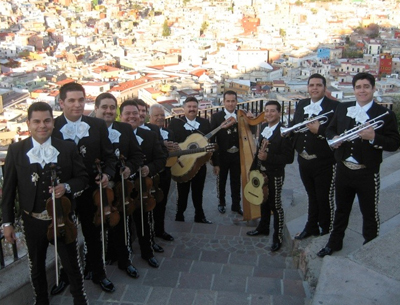

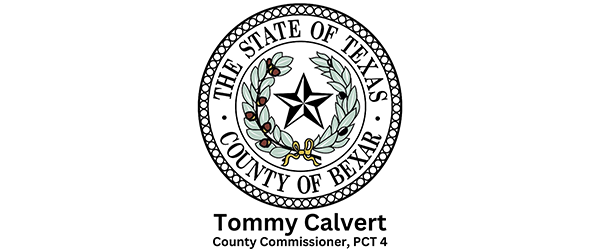

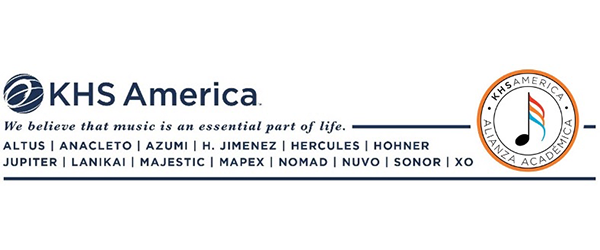
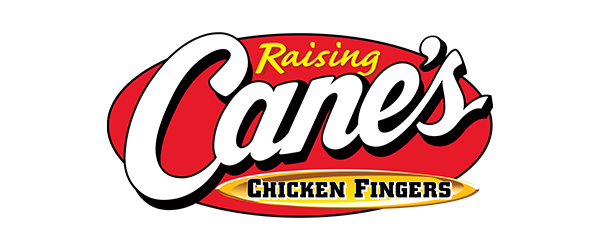
Rest in peace, Mr. Nati Cano…
I’ve had the pleasure of having attended performances of Mariachi Los Camperos to great, indescribable enchantment. Once I would hear their unmistakable melody “Llegaron Los Camperos con sus guitarras…,” I knew that a spectacular, delightful musical experience, which will continue to have that top-shelf, uncompromised level of commitment and thumbprint on it, was about to unfold.
With grand admiration, and as much gratitude as I can possibly muster, I applaude Mr. Nati Cano for his hard work, years of relentless dedication, for being a visionary, and being at the forefront of highly talented leaders in the arts that have had an astonishing impact in the advocacy of truly elevating the regional Mexican mariachi music to the heights of global notoriety, and who dared to include hip-hop and classical music in the repertoire of Los Camperos.
My most heartfelt and sincerest condolences to the family, and to each and every one of the accomplished musicians who have had the distinct privilege of wearing a charro suit donning the prestigious and ever-so-distinguished name, Mariachi Los Camperos de Nati Cano. Your legacy, Don Nati, will unquestionably continue as it is engrained in history, culture, and forever embedded, from coast to coast and continent to continent, in the hearts of so many.
Adelante, Camperos, con nostalgia, con honor y siempre con esa frente en alto que desde lejos los devisa su director, el gran “Chief”.
Los acompaño en su dolor…
Como integrante de Los Camperos durante la década de los noventas, a mí también me tocó ser testigo de la dedicación de Nati a la tarea de transmitir la tradición del mariachi a las nuevas generaciones. Su entusiasmo por incluir en sus programas a los jóvenes que le rodeaban, incluyendo a mi hija, Jazmín Natalia, Andy, el hijo de Ismael y los niños del grupo Macuilxochitl, influyó grandemente en mi decisión de perseguir la carrera de la educación musical. Con esa meta en mente, me reubiqué en el Valle Central, donde Nati continuó brindándome oportunidades para la enseñanza. A través de los años, Nati fue inspiración de un sinnúmero de educadores que estamos ahora en las trincheras del movimiento de mariachi en las escuelas públicas. Por esa apasionada labor de compartir el tesoro musical de México, el legado de Nati Cano ha de persistir a través de muchas generaciones.
De parte de la familia Cervantes, ¡¡gracias!! Agustín e Hilario
tomaron parte en grabaciones y también fueron Camperos. Lo respetaban mucho. El ejemplo que usaban para nuestra ensenañza musical y comportamiento fue todo el tiempo basado en lo de Nati.
I had the honor of meeting him at La Fonda restaurant back in 1998-99. He will be greatly missed in the mariachi world. Rest in peace!